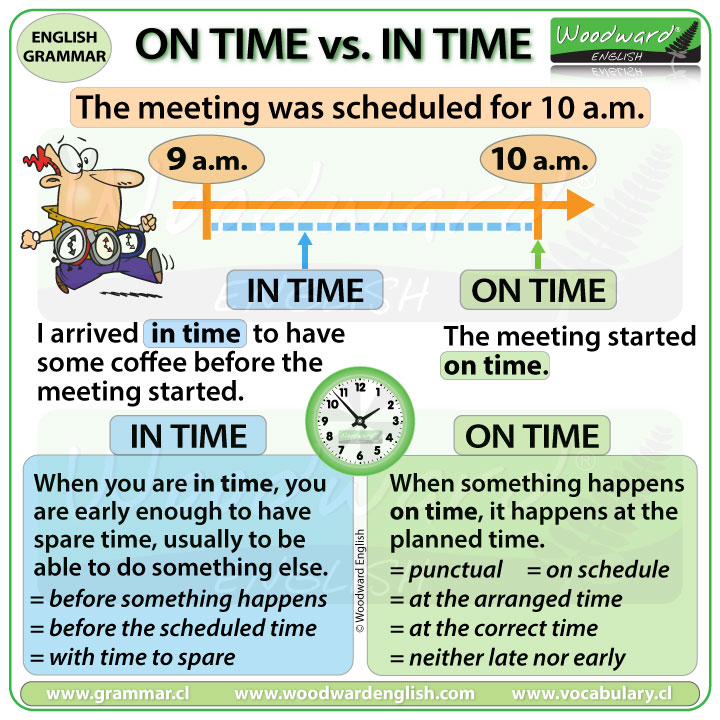ON time vs IN time – English Prepositions
The meeting was scheduled for 10 a.m.
Do I say…. I arrived on time. … or … I arrived in time?
Well, both are correct BUT they have slightly different meanings.
Let’s look at the difference between these two prepositions before the word time.
On time
When something happens on time, it happens at the planned time.
= punctual
= on schedule
= at the arranged time
= at the planned time
= at the correct time
= neither early nor late
- The meeting was scheduled for 10 a.m.
Despite being stuck in traffic, I managed to get to the meeting on time.
This means I wasn’t late. I arrived at the planned time.
- Susan always arrives late to work. She is never on time.
This means she never arrives at the correct time. She is never punctual.
IN time
When you are in time, you are early enough to have spare time, usually to be able to do something else.
= before something happens
= before the scheduled time
= with time to spare
Look at these sentences:
- The meeting was scheduled for 10 a.m.
I arrived at 9.30 so I could have some coffee before the meeting started.
I arrived in time to have some coffee before it started.
This means I arrived before the planned time of 10 a.m. and I had enough spare time to have some coffee before the meeting began. I arrived before the scheduled time of the meeting, which was early enough to be able to do something else.
Just in time
Just in time refers to something happening at the last moment, just before the deadline or just before something was supposed to happen. It means that something was almost too late.
The project was due at 10 a.m. We finished it a couple of minutes before it was due.
- We finished the project just in time.
Another example:
- I arrived home just in time to avoid the heavy rain.
Summary Chart

Are you normally on time for things?
(Or do you often arrive late to things?)
